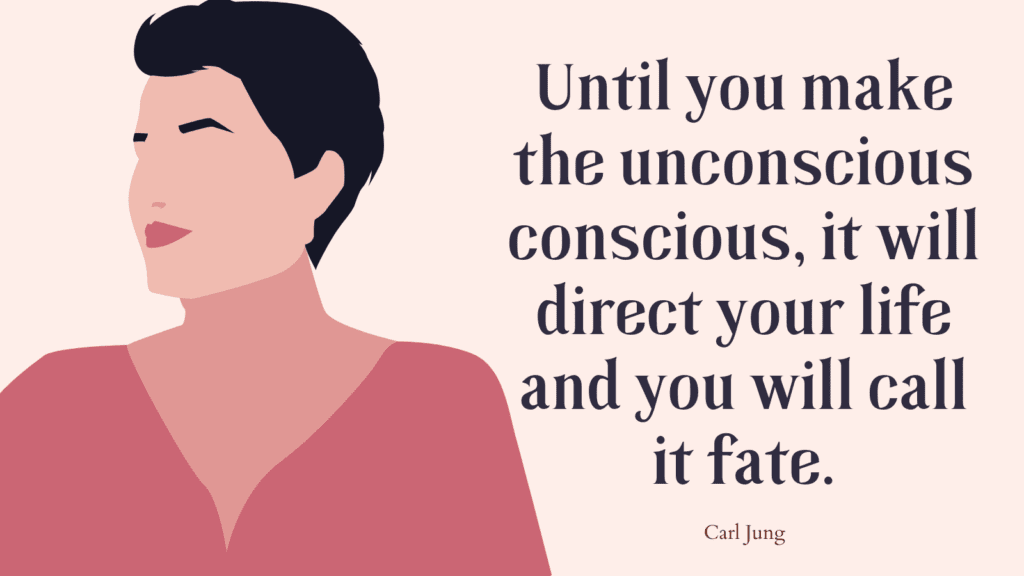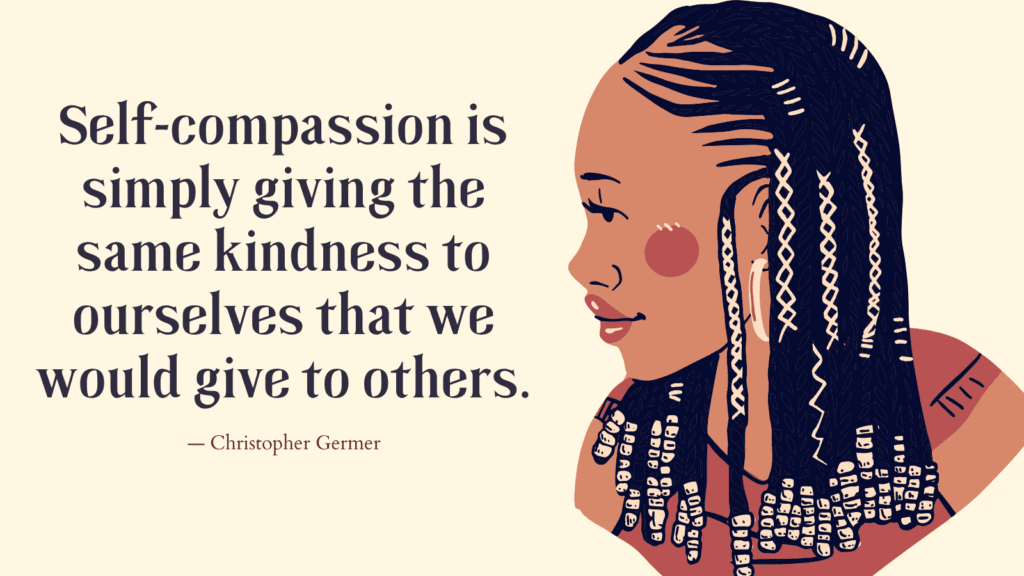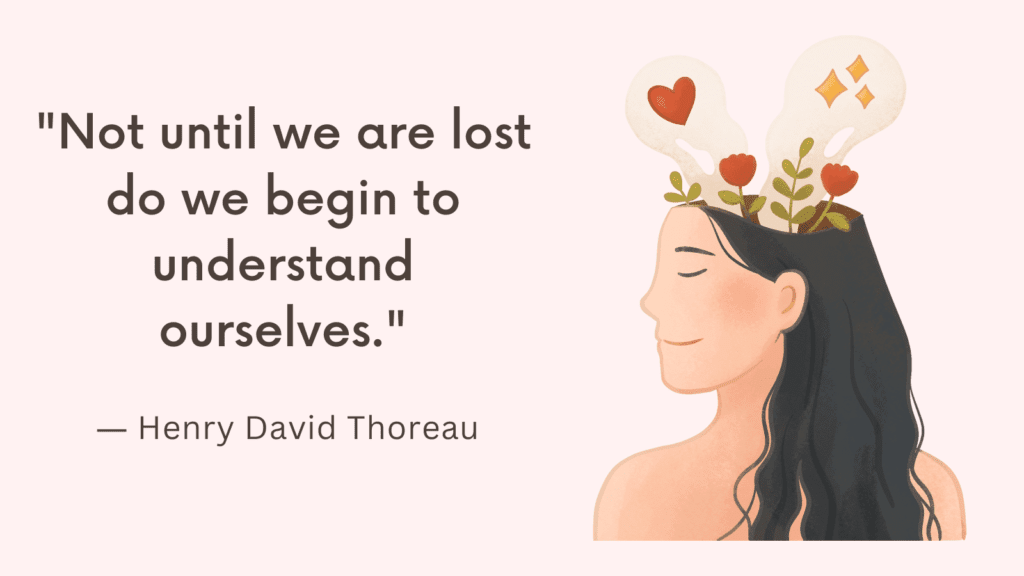Today, you’re going to learn the psychology behind living a double life and how to stop living a double life, in general, and discover how to end an affair, when your secret is an affair (emotional or sexual).
- What Does A Double Life Mean?
- Double Life vs. Private Life
- Double Life Examples
- How Living A Double Life Can Affect You?
- The Psychology Behind Living A Double Life: Why People Live a Double Life
- Not All Secrets Are Created Equal: Malignant Secrets
- How To Stop Living A Double Life When Your Secret Is Not Malignant?
- The Double Life Of A Lover: How to End An Affair?
- 4 Emotional Affair Signs
- How To End An Affair?
- Conclusion
What Does A Double Life Mean?
Everyone has secrets.
Life can seem manageable as long as we can control our secrets.
However, when those secrets start to control us, they turn into a secret or a double life.
A double life is one that causes you to behave in ways that are out of character.
Double Life vs. Private Life
A double life, on the other hand, entails deceit of some form rather than choosing to keep details about your life to yourself.
Double Life Examples
How does a double or secret life look like?
Anything that seems out of character.
- A seemingly good husband could have a porn addiction.
- A rich woman could be compulsively engaging in shoplifting.
- A seemingly ordinary nanny could be a drug addict.
- A seemingly happy husband could have a second home on the other side of town.
- Etc. (*) (*)
How Living A Double Life Can Affect You?
1. You Lose Your Primary Life
Living a secret life can cause people to behave in ways that are out of character.
They often go to desperate lengths to hide their double life.
A double life demands so much vigilance and attentiveness and time and energy invested in concealing their secret life.
Often, the secret life becomes the dominant one and everything else becomes secondary and irrelevant.
But losing one’s life is not the only consequence.
2. Internal Conflict: The Stress Of Living A Double Life
The secret can become an intrusive thought similar: just as with trying not to think about a pink elephant. The harder you try not to think about the secret, the more you’d think about it.
“Confession is good for the soul,” is an old adage that reflects the importance of the catharsis of revealing a secret.
Often, people start living in fear, sometimes paranoia that someone finds out about their secret life, with the possibility of discovery being played out again and again in their minds.
The Psychology Behind Living A Double Life:
Why People Live a Double Life
Secrets are an important way to maintain separateness as an individual and create intimacy with those we choose to share our secrets with. It’s what we call having a private life.
However, secrets can become so significant that they don’t fit into the identity we present to the world anymore, and the greater the secret, the greater the conflict.
This conflict manifests in a deep desire to reveal the secret and find relief while at the same time fearing its exposure.
Sometimes keeping a secret is a choice or a luxury.
Other times, it has life-or-death consequences.
Telling your family that you’re homosexual can lead to understanding and acceptance, or else rejection.
Put simply, a double life begins when the conflict between the need to reveal and the need to conceal the secret remains unresolved. (*)
Not All Secrets Are Created Equal: Malignant Secrets
An executive who finds his secretary attractive probably doesn’t need to share that with his wife.
When the secret grows bigger and creates conflict, it might spread and create a secret or a double life.
When the executive begins to ask the secretary out for lunch and starts to confide in her some intimacies that he never shared with his wife, the secret becomes malignant.
Where does a malignant secret come from?
According to Roman Catholic theology, the seven deadly sins are the seven feelings that inspire further sin.
They include: pride, greed, lust, envy, gluttony, wrath, and sloth.
It’s only when you recognize that you’re struggling with any of these urges, that you can prevent yourself from acting on them and turning a benign secret into a malignant secret.
Why Do People Keep Malignant Secrets?
Two reasons: Guilt and shame (whether valid or not).
Guilt is felt when you believe you’ve done something wrong.
Shame, on the other hand, is felt when you worry that someone else will think badly of you.
The more guilty or ashamed a secret makes you feel, the more likely you are to conceal it.
How To Stop Living A Double Life When Your Secret Is Not Malignant?
For many people, secrets like being gay, having been sexually abused as a child, or having an alcoholic parent, can create a secret or double life.
#1. Become Aware of Why You’re Leading a Double Life
The Secrets You Unknowingly Keep From Yourself
A double life doesn’t just include secrets we keep from others. It also includes secrets that we keep from ourselves.
Denial can go back as far as childhood.
These are subconscious feelings that we don’t want to know about or simply cannot access because we’re out of touch with ourselves.
They may manifest in dreams that we don’t understand, painful emotions that surface every now and then, an overreaction to seemingly trivial incidents, slips of the tongue, fantasies that seem contrary to our character, behavior that seems inexplicable, etc.
Freud adopted the term unconscious to describe absent yet active feelings, thoughts, urges, memories, and motivations.
While we may not understand where this unconscious manifestation came from, we instinctively know that we need to tighten up security.
But as C.G. Jung said ‘Until you make the unconscious conscious, it will direct your life and you will call it fate.’
Read more about self-sabotage Here!
Self-Awareness
The first step to stopping living a double life is awareness.
You may believe that you’re well aware of the secret life you have, but as long as it manifests in self-sabotaging behaviors and slips, there is a lot more to uncover, acknowledge, and accept.
Closeted individuals, for example, often cannot acknowledge to themselves, let alone to others, their homoerotic attractions.

#2. Recognize Unhealthy Guilt And Shame
Feelings of guilt and shame fuel secrecy and motivate us to hide.
However, those feelings may not be valid or accurate, especially when your secret is not malignant.
Unhealthy guilt and shame are disproportionate, misplaced, and irrational.
1. Unhealthy Guilt
This is where you feel that you’ve done something wrong when you didn’t really or have no actual control over the situation.
This guilt doesn’t help anyone because you can’t control the circumstances of the situation.
For example, a victim of sexual abuse may feel guilty that the abuse happened when there is nothing she could have done differently back then.
2. Unhealthy Shame
Where guilt is the feeling that you’ve made a mistake, unhealthy or toxic shame is the feeling that you are the mistake. (*)
Related: Top 10 Clear Signs Of Toxic Shame In A Person (& How to Deal With Toxic Shame?)
#3. Identify Your Negative Thoughts
Feelings of shame and guilt are mainly triggered by our thinking patterns.
The more mindful you are of your feelings of guilt and shame, the more able you become at identifying negative thoughts behind these feelings.
Perhaps you notice certain phrases constantly running in your head, such as, “Something is wrong with me,” or, “I am defective.”
These beliefs come from somewhere, but they do not accurately represent reality.
Start by making a list of your negative thoughts and where they came from.
For example, you may believe that being gay is wrong because this is the message you internalized from your parents.
Related: Reframing Negative Thoughts: How To Stop Overthinking And Relax? (Top 10 Techniques)
#4. Challenge Your Negative Thoughts
1. Be Realistic About What You Can Control
Make a list of what you can honestly control about a situation and the things you cannot control.
If the second list is longer, your guilt and shame are likely irrational.
2. Consider The Evidence For Or Against It
Use the following prompts to dispute your negative thoughts and reframe them:
- Am I confusing a thought with a fact?
- Am I assuming my view of things is the only one possible?
- Am I condemning myself as a total person on the basis of a single event?
- Am I blaming myself for something which is not really my fault?
Related: How to Challenge Negative Core Beliefs? The Ultimate Guide To Change Negative Beliefs
#5. Use Affirmations
Challenging your negative thoughts alone is not enough.
You need to replace them with positive, more rational alternatives.
Using affirmations can help you here.
For example, a victim of sexual abuse could use an affirmation like, “I did the best I could, with the knowledge I had.”
Read this guide on how to use affirmations.
#6. Treat Yourself With Kindness
Everyone has secrets, even if it feels like you’re alone in this, you’re not.
You’re a human, worthy of love — especially your own love.
Mindfulness can also help promote self-compassion and loving feelings toward yourself.
New to mindfulness? Here’s how to make it a daily habit.

#7. Seek Out Supportive Relationships
You might believe that vulnerability is what will make you an easy target and get you rejected or hurt.
And while it’s natural for you to play it safe, and assume that everyone is dangerous, this strategy comes at a cost: you’re missing out on intimacy, connection, and the support of safe people.
It doesn’t have to be all or nothing.
Allow yourself to pursue supportive relationships with people who care about your well-being.
It may take plenty of support and compassion from loved ones, but patience and self-compassion can make this possible.
Related: How To Make New Friends As An Adult? (The Right Way)
#8. Talk to a Professional
Feelings of guilt and shame can be so pervasive that working through them alone can be daunting.
A trained, compassionate therapist can offer guidance and support as you become more self-aware and start facing your own secrets.
If you want to learn more about challenging and reframing negative thoughts, cognitive behavioral therapy can be a good therapy approach.
To find a mental health care provider near you, call 1-800-662-HELP (4357) or you can use online therapy.
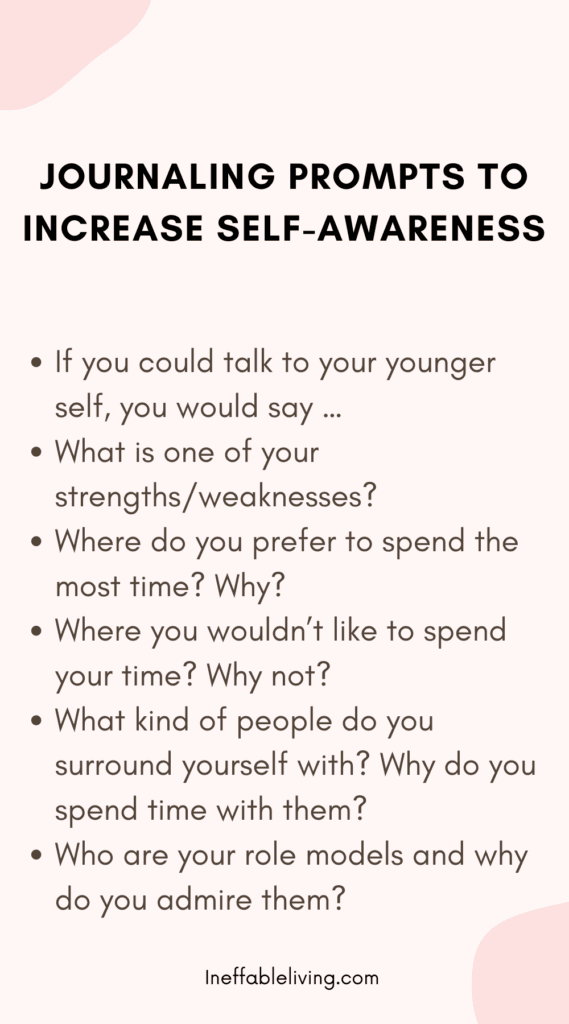
The Double Life Of A Lover: How to End An Affair?
Can An Emotional Relationship That Doesn’t Involve Sex Qualify As An Affair?
Yes.
What constitutes an affair isn’t necessarily the sexual relationship but secrecy.
An exchange of secrets creates intimacy and that intimacy may lead to sex or not.
When the relationship is nonsexual but equally intimate, it constitutes an emotional affair. (*)
4 Emotional Affair Signs
In general, signs you may be having an emotional affair include:
- Keeping most conversations and meetings with this person secret from your partner.
- Sharing more intimate details about yourself and your life with this person than you do with your partner.
- There is a sexual attraction between the two of you (spoken or unspoken).
- The thought that your partner might see you together or read your texts makes you feel guilty.
How To End An Affair?
Whether you’re on the brink of an affair or are already in one, you can still step back.
The first step is to get out of denial
Just as it takes a conscious effort to keep an affair secret from others, it takes an unconscious effort to keep it a secret from oneself.
Consider What Is “Missing”
Try to identify what feels “missing” from your marriage or primary relationship or from yourself.
The key here is to work on finding what, if anything, is absent without jeopardizing your primary relationship.
Sometimes something within the relationship is not working and irreversibly so. The relationship may need to end, for the sake of your own emotional or physical safety.
Related: How to Get Through a Divorce? Top 12 Steps to Follow to Make Your Divorce Less Painful
But for many people, an affair is born of the belief that another relationship or another person can fulfill an emotional void in ourselves.
Some people struggle with self-love and self-acceptance and hope it will come from the “other.”
They may think, “He wants to be with me. He loves me, and therefore I am lovable,” or, “He makes me feel desirable, therefore I am desirable,” or, “I like wanting her and I like what getting her says about me.”
Such thought patterns might not be objectively true. Many people struggle with receiving love and approval. Even when their primary partners are deeply appreciative of them, they find it difficult to believe.
Related: Learning to Receive: How to Receive More In Life Using These 9 Practical Techniques?
Others struggle with intimacy. They are emotionally distant and out of touch with themselves and are seeking intimacy – or rather pseudo-intimacy in other relationships.
Related: Intimacy Issues: How To Get Over Fear Of Intimacy And Bring Intimacy Back Into A Relationship?

Conclusion
We all have secrets.
They are important to maintain a sense of separateness and create intimacy with those we choose to share our secrets with.
However, when the secret becomes too big, leading you to act in ways that are out of character, it can create a conflict and become all-consuming.
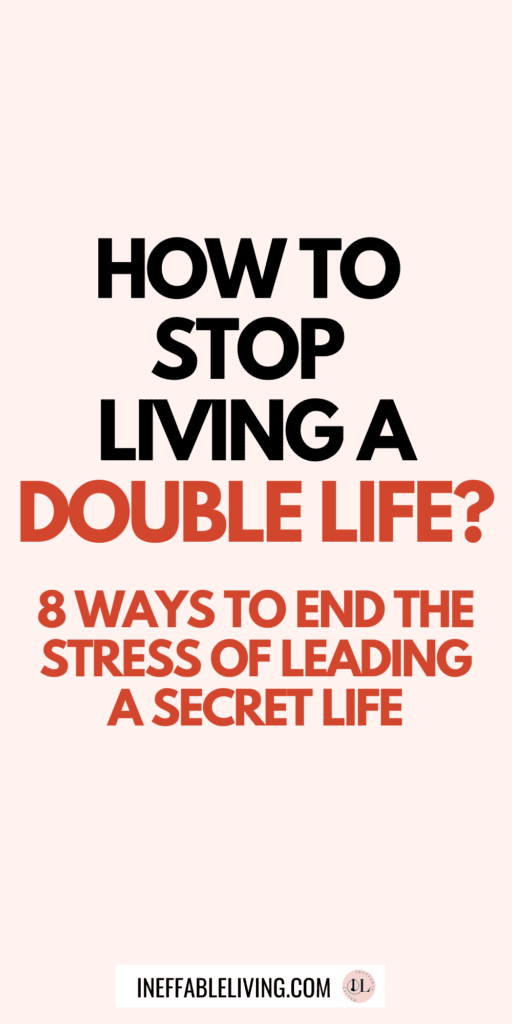
References
- Portions of this article were adapted from the book Anatomy of a Secret Life: The Psychology of Living a Lie, © 2006 by Gail Saltz. All rights reserved.
